News
Personalised nutrition for kids gathering pace
31 Aug 2023
Cold cereals and supplements are the top two categories for brands to personalise products for children as food makers continue to experiment with nutrient fortification to aid in eye, immune, and gut health at an earlier age.
Findings from a new Mintel Insights report reveals that the past three years of children's food, drink, and supplements launches are dominated by cold cereals, vitamins and minerals, and biscuits/cookies.
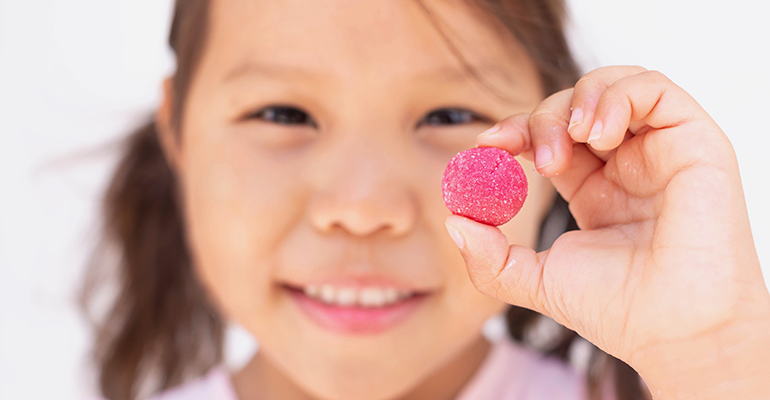
According to Rick Miller, food and drink associate director for specialised nutrition at Mintel, brands should “seek to add a layer of personalisation within areas such as energy, brain and nervous system health, and bone health. For kids' supplements, immunity is the lead functional claim”.
“Brands must think 'fortification with an edge’,” he added, pointing out that brands in cold cereal and supplements currently stick to “safe” fortification, leaning on herbal ingredients to create functionality.
Sweet biscuits and cookie launches down on previous years
Figures from Mintel’s own Global New Products Database (GNPD) reveals that cold cereals represented an 12% global share of food, drink and supplement launches aimed at kids aged 5 to 12 in 2020, increasing to 13% in 2021.
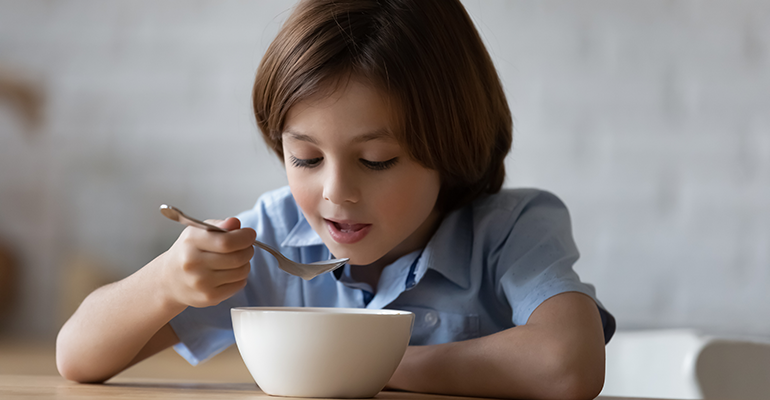 © AdobeStock/fizkes
© AdobeStock/fizkes
Likewise, vitamins and dietary supplements grabbed an 8% share of the same market, increasing to 10% in 2021 and 11% in 2022.
Other categories include pastilles, gums, jellies, and chews, which represented a 3% global share, rising to 4% in 2022.
In contrast, sweet biscuits/cookies posted slight declines in global market share throughout the past three years: -8% in 2020; -7% in 2021; and -6% in 2022.
“The cost-of-living crisis is already leading people to cut back on sweet biscuits,” said Richard Caines, senior food and drink analyst at Mintel.
“But, given that 75% of people think that sweet biscuits are an affordable treat, they are in a better position than many other discretionary items.
“In-store visibility for sweet biscuits is being hampered by [high fat, salt, and sugar] HFSS product location restrictions, making it even more important for products to stand out in the biscuits aisle.”
Product showcase
Brands already bringing new approaches to product fortification include MyMuesli Disney Küche Morning Princess Muesli with Pink Hearts, a lower-sugar (3.8g per 60g serving) option launched in Germany that allows for personal customisation to ensure consumers get the perfect blend.
Other products ripe for personalisation include Shaklee’s Meology supplements that provide personalised packs for kids based on an online quiz. Each pack covers unique health or performance needs, such as immunity.
In a similar vein, US-based Persona Focus Daily Gummy Vitamin Packs for Teens uses a blend of herbal ingredients, such as saffron, daily micronutrients, and phosphatidylserine for cognitive support in a convenient gummy format.
“This desire for better nutrition is rooted in the concept of dietary quality,” added Miller. “Brands can tap into this consumer need by emphasising how personalisation upgrades their kids' nutrition rather than simply 'kidifying' it.”
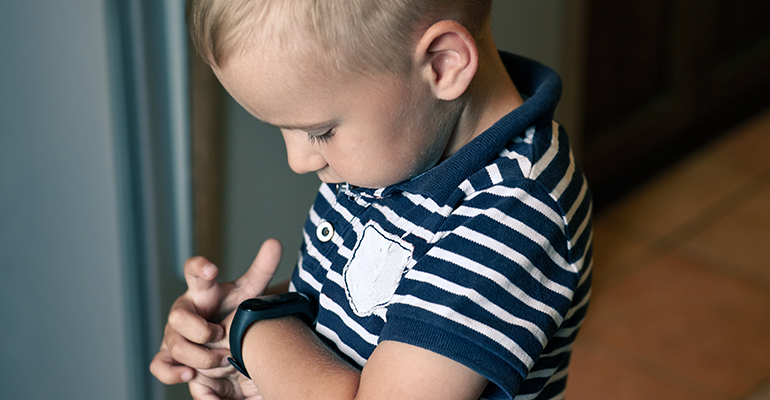 © AdobeStock/Elena
© AdobeStock/Elena
Wearable technology crucial in tracking kids’ physical activity
The insight report, entitled ‘Nutrition Watch: Personalised Nutrition for Kids,’ also discusses the emergence of wearable technology as a means to track children’s fitness levels and address childhood obesity.
The trend comes as the Centers for Disease Control and Prevention (CDC) in the US highlighted that childhood obesity was worsening and that increasing childhood activity was key to managing obesity rates.
“Given the evolution of kids' fitness trackers into smart watches – and their market growth – brands should seek to align themselves with this trend and support uptake,” said Miller.
“In 2019, we highlighted the importance of 'digi-leisure' and fitness trackers alongside kids' specialised nutrition. The kids' smart wearables market is projected to grow, and brands aiming for greater personalisation within kids' nutrition should seek to align.”
Examples of the kinds of development in this field include Angel Watch, which provides all the health metrics of an adult smart watch such as heart rate monitoring but in a child- and parent-friendly format.
Related news
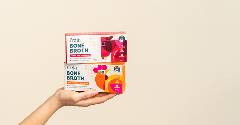
Bone broth: From old-fashioned to en vogue
24 Nov 2025
OXO’s entry into bone broth has turned the spotlight on this small but high-performance category – and there is still scope for growth, especially in the area of GLP-1 support.
Read more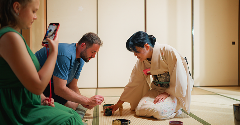
Matcha madness: Why green is this year’s hottest colour
19 Nov 2025
Five years ago, it was a struggle to find matcha outside of Japan. Now it seems to be popping up everywhere, from coffee shops to supermarket shelves.
Read more
How younger consumers are redefining ingredient choices and rejecting brand loyalty
18 Nov 2025
Gen Z and millennial consumers’ preferences for transparency, functionality, and purpose are “redefining the very nature of consumption itself”, says SPINS.
Read more
Hybrid formats and flexible positioning to disrupt category norms in 2026
17 Nov 2025
Trend forecasters expect food and drink to move more fluidly across occasions, functions, and formats as consumers seek versatility, novelty, and convenience.
Read more
Empowering innovation in fortification and colouration
13 Nov 2025
Divi’s Nutraceuticals offers a large portfolio of innovative, high-quality ingredients for foods, beverages, and supplements, with bespoke solutions and expert support for product success.
Read more
Predictive maintenance redefines powder mixing reliability
13 Nov 2025
Mill Powder Tech's smart control systems harness real-time data to help the food and biotech sectors achieve zero downtime and smarter output, alongside rigorous GMP standards and ambitious ESG goals.
Read more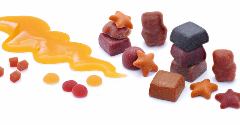
From fruit to functional solutions: Meet Paradise Fruits at Fi Europe in Paris
13 Nov 2025
Paradise Fruits Solutions and Paradise Fruits Health will showcase their combined expertise in delivering innovative, fruit-based solutions to the food and beverage industry at the upcoming Fi Europe trade show (2-4 December 2025, Paris).
Read more
Danone highlights digestive health as potential ‘tipping point’ for food industry
13 Nov 2025
Danone is betting on a food industry “tipping point” that will bloat the market for healthy products, particularly those related to gut health.
Read more
Bord Bia presents Irish dairy ingredient suppliers at Fi Europe
6 Nov 2025
Dairygold Co-operative Society, The Carbery Group, and Ornua Co-operative: Meet with sustainable producers of Irish dairy ingredients at Food ingredients Europe 2025, Hall 7.2 Stand M18.
Read more
Ingredient quantities mislabelled on popular protein bars, independent tests show
5 Nov 2025
Some popular protein bars contain more fat, carbs, and/or sugars than claimed on their labels, independent nutrition testing reveals.
Read more